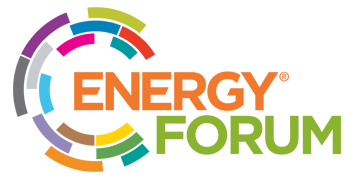By Stewart McGrenary, Plunc.com
The UK Waste Problems and the Blockchain solution.
One major issue hanging over us as a result of environmental damage is the fact that most of the world’s plastic is finding its way into the ocean, changing the balance of the ecosystem and killing species across the world.
In 2016, just 7.4 million tons of the 11.5 million tons of packaging waste were recycled in the UK and 0.9% of that 7.4 million tons were recovered. These plastic waste come in the form of nylon packaging and plastic bottles that are made from fossil fuel sources such as natural gas and petroleum. They produce toxic chemicals that bleed into our water and damage sea life.
The world’s stance on recycling has significantly strengthened, and most developed countries are looking to adopt methods of recycling that have the potential to dramatically reduce the amount of waste being dumped in the ocean or landfills. Millions of pounds are spent yearly on recycling but the corrupt and unfaithful practices of contractors have put the money invested into waste management, amounting to waste. Owing to these facts, the incorporation of the Blockchain technology into recycling is most welcome.
What exactly is the Blockchain?
The Blockchain is a sophisticated technology that records and stores transactions in “blocks” on a transparent network. It is constantly growing as new sets of recordings or blocks are added to it. The database is not controlled by anyone, but in fact, everyone in the whole network is able to track what’s going on.
A transaction is created by a user and it becomes a block, and only that user can add additional information to that block using his special encrypted key. When the next relatable block is created, it is chained to the preceding block.
How can Blockchain help waste management?
From 2017 to 2018, over £8 billion pounds was spent on waste management in the UK alone out of the £11.4 billion pounds spent on environmental protection. Despite these facts, it currently is easy for a waste contractor to take any amount of waste to a landfill site and input any amount of weight tonnes on his invoice and absolutely get paid. But the blockchain technology has a “smart contract” feature that allows you to create a contract digitally and input the limits, standards, and payment for the contract. The contractor takes the contract and once the job gets done, the contractor gets paid.
The blockchain can be programmed to the weighing machines at the landfill site so that the contractor gets paid according to the exact tonnes of waste that are transported. Transactions are more accurate and transparent because the job would be monitored on the network by the authorities in charge, and the records are updated on the blockchain.
In France, the pilot of a blockchain system in a rail station’s waste collection saved almost £2,000 pounds in that station just in one month. Think about that, and how much would be saved in a year, then multiply that by all the collection stations in the country. We do not want to put this waste management option to waste too.
Incorporated systems around the world that use the Blockchain technology for waste management.
Using the blockchain technology for waste management isn’t exactly untested waters. There are already companies and systems around the world that have already incorporated the use of blockchain tech to enhance their waste management. Some are based in the UK, and the US, while some have collection centres in developing countries like Haiti, Indonesia, Brazil, and the Philippines.
- Nature Coin
Nature coin is a game changer of the recycling industry for the future of a smart city. Piloted in Vancouver, Nature coin makes recycling profitable by utilizing blockchain and Internet of Things (IoT) to reward users for efforts made towards recycling. Users are rewarded when they recycle disposable waste including plastics, tins, and cans.
Nature Coin has a range of smart bins in cities and they also use an interactive to act as a digital wallet for transactions on the blockchain.
So when you dump waste into the smart bin, Nature Coin records the amount of waste deposited and it converts that to cryptocurrency according to the transaction as stated on the blockchain. That cryptocurrency can, therefore, be used to buy some sweets at the store or fares on the bus or can even be saved up for fees.
- Plastic Bank
Plastic bank by IBM is a global network of recycling markets that encourage people to pick up plastic and get rewarded by cryptocurrencies. Plastic Bank uses local entrepreneurs to collect plastic waste from people, gather them, and sort them by type, colour, and weight and sell them directly to manufacturers who are certainly end-users of the plastic waste.
The individuals who bring the plastic to the collector are rewarded with blockchain-backed cryptocurrencies (bitcoins among others).
- RecycleToCoin
This is another example of a blockchain based waste management platform. A bit peculiar to others, this one allows for the exchange of cryptocurrencies received to e-gift cards.
They also have a partnership with Plastic Bank that allows those who use RecycletoCoin to donate their cryptocurrency earnings to Plastic Bank.
RecycletoCoin was developed by the Blockchain Development Company (BCDC), and like every other blockchain based waste management platform, it rewards users in for picking up single-use plastic and tin cans by exchanging such waste for BCDC tokens which can be in turn exchanged for other cryptocurrencies.
- Agora Tech Lab
Based in Rotterdam, Netherlands, Agora is developing its first pilot within the municipality of Rotterdam and several local organizations to use blockchains to register waste management related transactions.
Residents of Rotterdam are rewarded with cryptocurrencies for services that involve waste management and recycling in their society. Agora Tech Lab being a start-up company, didn’t need to source for heavy funding. Blockchain technology has given them a scalable platform to build and make waste management more accountable.
In conclusion…
Waste management really comes down to our personal resolve. Dropping plastic cans in the appropriate bins and keeping such waste away from the ocean should be a duty; to earth and to the life of various species.
The UK is doing a lot in terms of waste management, but with the implementation of blockchain technology in their plans, they will be able to do much more. Thanks to the evidence from the four companies above, we have seen instances where blockchain-based platforms have been able to challenge effective recycling and recovery, and also reward contributors with cryptocurrencies and tokens for their contributions to the recycling process.
Finally, the blockchain technology is the next lofty step to be taken in waste management in this era where we are trying to promote transparency in the public sector and cultivate and encourage the habit of nurturing our environment in our community.
Want to hear more about the role of blockchain technology in renewable power? Take a look at the conference presentations from All-Energy 2018 and download them free-of-charge.

